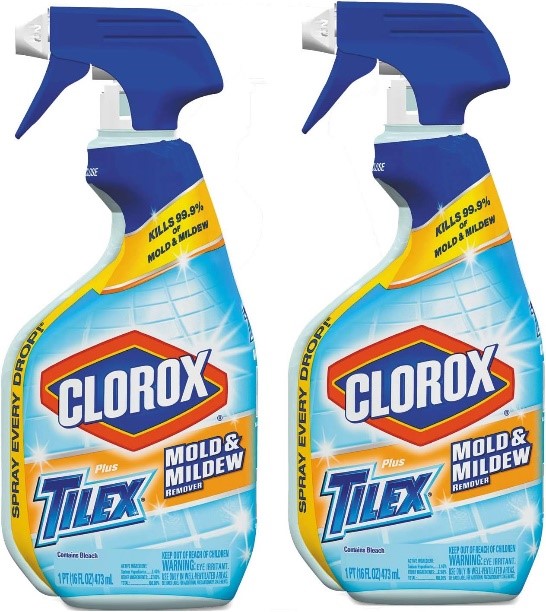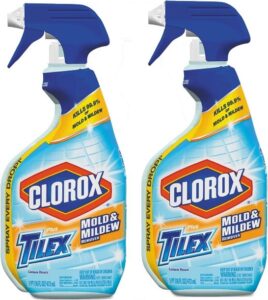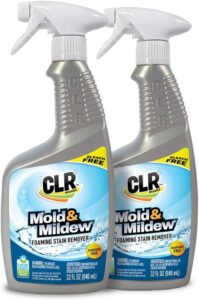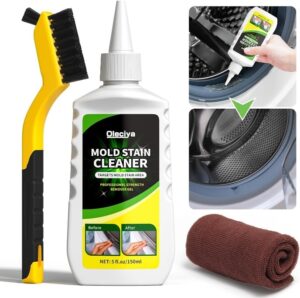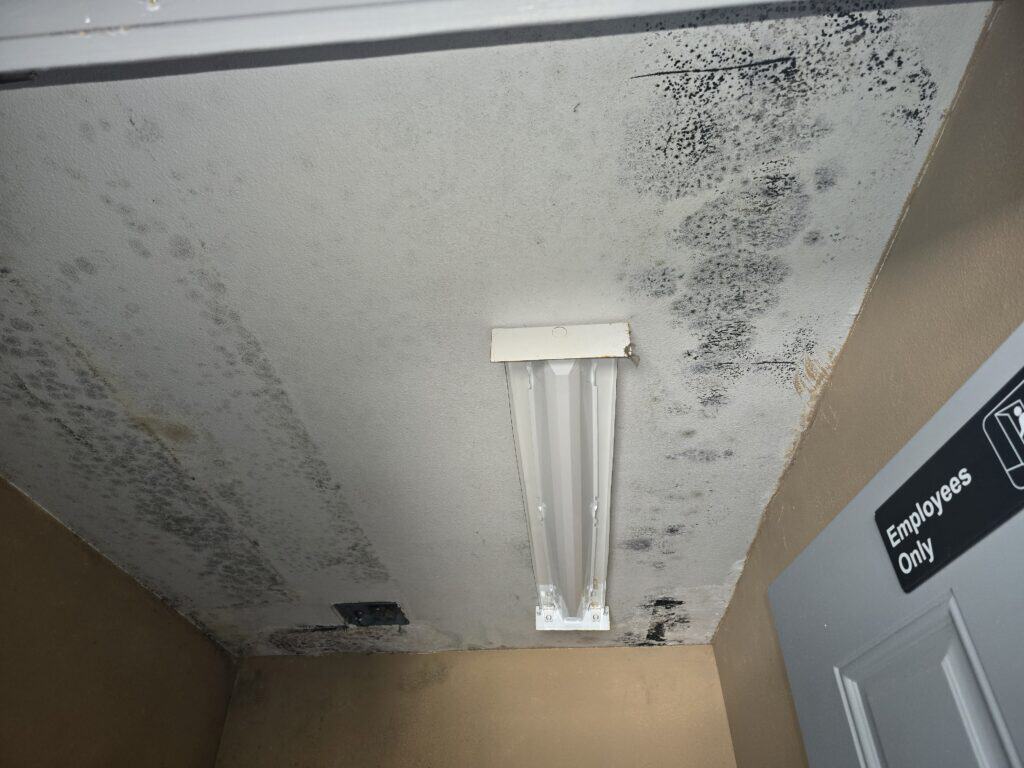
Are you struggling to clean mold in your home? You’re not alone: About half of American homes have mold issues.
Mold is not just an eyesore; it poses serious health concerns, especially for those with allergies, asthma, and other respiratory conditions. It causes a 30 to 50% increase in respiratory-related cases, including asthma. In fact, the Environmental Protection Agency (EPA) approximated that over 4 million cases of asthma cases in the US can be directly linked to mold.
Mold also causes structural damage to your home by eating away at surfaces like drywall, wood, and concrete. It is, therefore, crucial that you deal with mold quickly before it damages your health and home.
So, how do you clean mold before it causes any damage or calls for extensive mold remediation? Read on to find out.
Natural Ways to Clean Mold
If you prefer avoiding harsh chemicals, several effective natural mold cleaning solutions exist. Natural cleaning agents are gentler on surfaces, safer for those with sensitivities, and environmentally friendly.
1. Use Vinegar To Clean Mold
White distilled vinegar is a surprisingly powerful cleaning agent. Its acidity makes it hostile to many types of mold. Here’s how to use it:
- Prepare the solution: Pour undiluted vinegar into a spray bottle.
- Apply: Spray generously on the moldy surface and let it sit for at least an hour.
- Wipe and dry: Wipe away the loosened mold with a damp cloth and allow the area to air dry completely.
2. Baking Soda As A Mold Cleaner
Baking soda is a mildly abrasive cleaner and natural deodorizer. It also absorbs moisture, which helps deter mold growth. Here’s how to use it:
- Make a paste: Mix baking soda with a small amount of water to form a thick paste.
- Apply and scrub: Spread the paste on the mold, then scrub with a brush or sponge.
- Rinse and repeat: Rinse the area thoroughly and reapply if needed.
3. Tea Tree Oil
Tea tree oil has natural antifungal properties. It’s important to note that it should always be diluted before use. Here’s how to create a mold-fighting solution:
- Mix the solution: Add a teaspoon of tea tree oil to a cup of water in a spray bottle.
- Apply and let sit: Spray the solution on the moldy area and let it sit for at least an hour.
- Wipe clean: Wipe away any remaining mold residue with a clean cloth.
Commercial Mold Cleaning Products
Commercial mold cleaners are stronger than natural solutions. Before using them, it is important to read product labels carefully and strictly follow the safety instructions.
Here are the common types of mold-cleaning products:
1. General Mold and Mildew Cleaners
These multipurpose cleaners are designed to tackle various mold and mildew strains. You can find them in most supermarkets and cleaning supply stores. Here’s what you should know:
- Effectiveness: These cleaners are suitable for smaller, less severe mold problems.
- Ingredients: Look for products with hydrogen peroxide or other antifungal ingredients.
- Safety: Wear gloves and a mask, and ensure good ventilation while using them.
2. Bleach
Chlorine bleach is a powerful disinfectant that can kill mold effectively. However, it’s also harsh and potentially hazardous. Here is what to consider:
- Suitable surfaces: Bleach works well on non-porous surfaces like tile and porcelain but can damage other materials.
- Dilution: Always dilute bleach with water according to the product instructions.
- Precautions: Wear protective gear and ensure proper ventilation. Bleach fumes can be harmful.
3. Specialized Black Mold Cleaners
Black mold, often the notorious Stachybotrys chartarum, can be particularly stubborn and sometimes requires specialized products. Here’s a breakdown:
- When to use: These cleaners are recommended for confirmed black mold or mold that resists other cleaning methods.
- Ingredients: Stronger formulations may contain biocides specifically targeted towards black mold.
- Safety: Follow label instructions meticulously, as these products can be very potent.
Mold Prevention Tips
The best defense against mold is to stop it from growing in the first place. Here are crucial strategies to keep your home mold-free:
- Control Humidity:Mold thrives in damp environments. Aim to keep your home’s humidity level below 50% using the following methods:
- Dehumidifier:Invest in a dehumidifier for humid areas like basements or seasonally damp rooms.
- Ventilation:Run bathroom exhaust fans during showers and open windows when weather permits.
- Address Moisture Sources:Fix any leaks promptly, whether it’s a dripping faucet or a leaky roof. Dry water spills or flooded areas immediately (within 24-48 hours).
- Proper Drainage:Ensure good drainage around your home’s foundation. Check that gutters are clear and downspouts direct water away from the house.
- Air Circulation:Improve airflow by opening doors between rooms and ensuring furniture isn’t placed too close to walls. This helps prevent stagnant air pockets where mold can develop.
- Regular Cleaning:Clean mold-prone areas like bathrooms and kitchens frequently. Pay special attention to potential trouble spots like shower corners and under sinks.
Best Mold Cleaning Products
Finding the best mold-cleaning product for your needs can make a huge difference in successful removal. Here’s a look at top-rated options for tackling mild to stubborn mold issues:
This powerful cleaning solution utilizes bleach to effectively remove mold and mildew stains from hard, non-porous surfaces like tile, bathroom fixtures, and grout. The spray bottle format offers easy application.
Best For: Removing stubborn mold and mildew stains from bathroom areas and other hard surfaces around the home.
Pros:
- Effective bleach formula for tough mold/mildew stains
- Whitens grout and removes soap scum
- Bulk pack offers convenience and value
Cons:
- Harsh chemical with strong fumes (ventilation essential)
- Not suitable for fabrics or porous surfaces
This bleach-free cleaning spray is designed to tackle tough mold and mildew stains on a variety of surfaces, both indoors and outdoors. It’s formulated to work on materials like tile, fiberglass, concrete, wood, grout, and even fabrics. The product features a foam sprayer for targeted application.
Best For: Removing mold and mildew stains without the harshness of bleach. Suitable for various surfaces, including those commonly found in bathrooms, boats, and outdoor areas.
Pros:
- Bleach-free formula is less harsh on surfaces and safer around people and pets
- Works on a wide variety of materials
- Foam sprayer allows for precise application
Cons:
- May not be as powerful as bleach-based cleaners for extremely severe mold
This gel-based cleaner is designed to cling to vertical and hard-to-reach surfaces to remove stubborn mold and mildew. It can be used on various household surfaces, including washing machine seals, tile grout, refrigerator gaskets, and bathroom fixtures.
Best For: Removing mold from tight spaces and surfaces where a gel formula provides better adhesion.
Pros:
- Gel formula clings to surfaces for longer contact time
- Effective on tough mold and mildew
- Can be used in a variety of household applications
Cons:
- May require longer dwell time compared to spray-on cleaners
Conclusion
Mold isn’t just an aesthetic problem; it presents potential health risks and can lead to property damage. By understanding the causes of mold and utilizing effective cleaning techniques, you can create a safer and healthier home environment. Whether you opt for natural solutions, commercial cleaners, or a combination of both, the most important step is taking action promptly.

